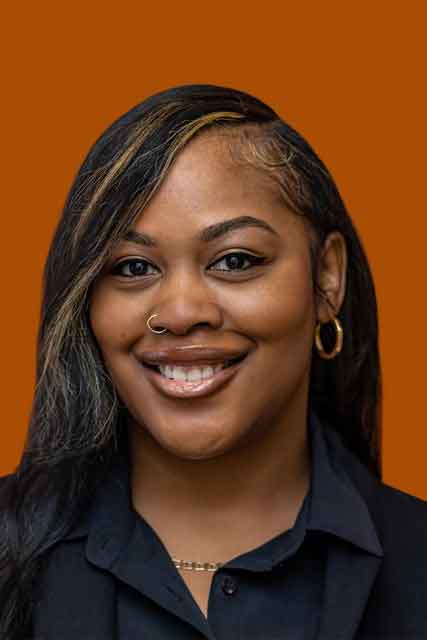Breaking the Silence: How Open Conversations About Sexual Health Empower Black Communities
May marks Sex Ed for All Month, a national call to action reminding us that every young person deserves access to comprehensive, medically accurate, and inclusive sex education. But in 2025, this fight has become more urgent than ever.

By Brittinae Bell, MS, CHES
May marks Sex Ed for All Month, a national call to action reminding us that every young person deserves access to comprehensive, medically accurate, and inclusive sex education. But in 2025, this fight has become more urgent than ever.
For many Black communities, discussing sexual health issues has long been surrounded by stigma, misinformation, and silence. From family gatherings to classrooms, uncomfortable conversations are often avoided, leaving young people to rely on unreliable sources of information. This silence has consequences. It contributes to higher rates of unintended pregnancies, sexually transmitted infections, and mental health challenges among young people.
It’s time to break that silence.
I’ve witnessed firsthand the impact that comprehensive sex education can have on individuals and communities. Education is a powerful tool for empowerment—by providing young people with the facts about their bodies, identities, and relationships, we give them the ability to make informed decisions that affect their health, well-being, and future. According to The American College of Obstetricians and Gynecologists (ACOG) comprehensive sexuality education imparts knowledge and skills critical for ensuring that adolescents and young adults are equipped to make informed decisions about their bodies, health, and relationships. Its benefits include delaying sexual initiation, increasing the use of birth control, and reducing sexual risk behaviors, sexually transmitted infections, and rates of unintended pregnancy.
When Black youth receive accurate and inclusive sex education, they are better equipped to navigate relationships, set boundaries, and prioritize their health. Not only does comprehensive sex ed help students avoid the pitfalls of misinformation, it also fosters healthier, more respectful relationships. We know that when young people learn about topics like consent, healthy communication, and emotional intelligence, they develop stronger self-esteem and better decision-making skills.
But misinformation thrives in silence. When we shy away from these vital conversations, we leave room for harmful myths to spread. The result is a generation of young people who may be misinformed or unaware of their rights and available resources. Misinformation can be dangerous—especially in a climate where extremist groups are actively working to undermine education that is truthful, inclusive, and comprehensive.
It’s important to recognize that these conversations aren’t just about sex—they’re about health, identity, respect, and autonomy. When young people understand their bodies, their rights, and the importance of consent, they become empowered to make choices that lead to better health outcomes. Unfortunately, many Black youth, especially those in underfunded schools and communities, are deprived of this essential education.
In the face of ongoing political battles to censor and ban sex education, we must take a stand. The same forces attempting to strip away reproductive rights, ban books, and erase history are targeting comprehensive sex education. These attacks aim to control the information young people receive, ultimately disempowering them in the process.
At Planned Parenthood Los Angeles, we stand firm in our belief that every young person—no matter their zip code, gender, race, or income—deserves access to knowledge that empowers them to lead healthy, informed, and empowered lives. We also know that comprehensive sex education that is culturally responsive and inclusive can help dismantle harmful stereotypes about Black youth and create safer, more supportive communities.
This May, as we celebrate Sex Ed for All Month, we must continue to push back against the forces that seek to limit young people’s access to the truth. We must ensure that Black youth are not left behind in the fight for equitable access to education. We must keep these conversations going—open, honest, and filled with the knowledge that will shape the future.
To learn more about the health services available through Planned Parenthood Los Angeles’ Black Health Initiative, visit Planned Parenthood Los Angeles – Black Health Initiative.
—
Brittinae Bell is the Senior Education Manager for the Black Health Initiative at Planned Parenthood Los Angeles (PPLA). She manages PPLA’s education team for the Black Health Initiative while driving community outreach and education for college students, parents, and youth. Brittinae is proud of her work with the Black Health Initiative, including developing and piloting its curriculum, educating the Black community, and creating Soul Friends, a safe space to have honest conversations about mental and sexual health.









